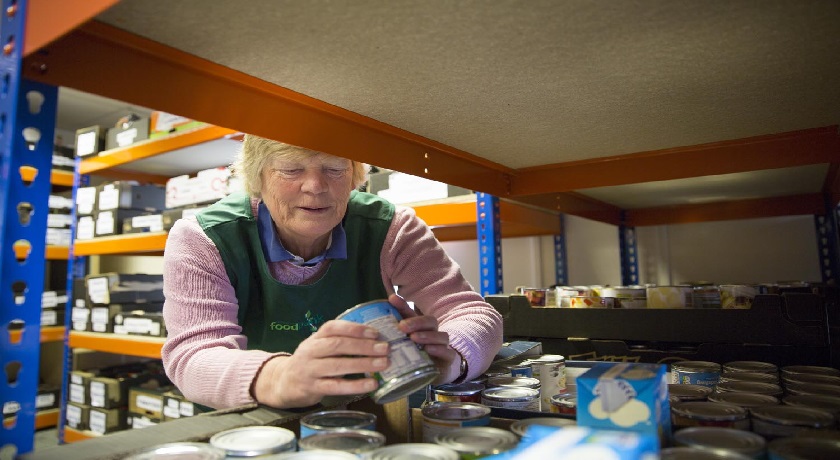 Figures released by The Trussell Trust – Britain’s largest foodbank network – show that more families are being forced to use foodbanks to meet their day-to-day needs.
Figures released by The Trussell Trust – Britain’s largest foodbank network – show that more families are being forced to use foodbanks to meet their day-to-day needs.
Analysis of foodbanks in areas where there has been full Universal Credit (UC) rollouts, show that these projects experienced an average increase of 52% in the 12 months after the full rollout date. In areas where UC is not yet in place, or has not been fully rolled out, people using foodbanks have increased 13%.
The figures, released on 24 April, are accompanied by the Trussell Trust’s publication of ‘Left Behind: Is Universal Credit Truly Universal?’ – a new report into UC and foodbanks. The findings of a survey of 284 people on UC referred to foodbanks reveal the negative impact of the initial wait, the lack of available statutory support, the inability of UC payments to cover the cost of living for people who most need it, and poor administration.
United Reformed Church Minister, the Revd Paul Robinson of The United Church in Rhyl, says UC is just being rolled out in his area and that the foodbank at the Ask Centre, which is part of the church, has yet to see a spike following the rollout of UC.
‘But give it a couple of weeks and we might,’ he added. ‘We work closely with Citizens Advice and they are helping us get prepared because foodbank usage is likely to increase with the introduction of Universal Credit. That happens whenever there’s been benefit system changes and thanks to the generous giving in our church family and God’s provision, we are ready to offer increased support to our community.’
Although UC is not the only benefit people using foodbanks experience issues with, it is said to be a significant factor in causing families financial difficulties.
Emma Revie, Chief Executive of The Trussell Trust, said: ‘Universal Credit is the future of our benefits system. It’s vital we get it right, and ensure levels of payment keep pace with the rising cost of essentials, particularly for groups of people we know are already more likely to need a foodbank – disabled people, people dealing with an illness, families with children and single parents.’
Paul Morrison, a policy adviser with the Joint Public Issues Team (JPIT), added: ‘A benefit system that allows families to go hungry is a benefit system that is failing.’
Mr Morrison also described the work of The Trussell Trust and others providing emergency food aid ‘vital’. He warned: ‘Foodbank clients are the tip of the iceberg, a warning sign that must be heeded if we are to prevent disaster for many families’.
Picture: The Trussell Trust




